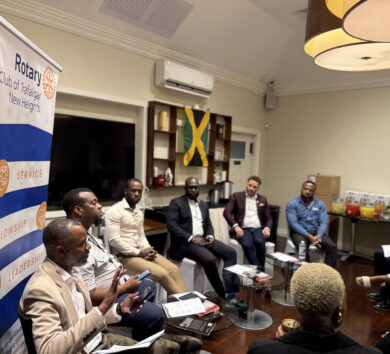

Most Anglophone Caribbean nations celebrate Emancipation Day on August 1.
August 1, 1834 marks a special day for enslaved people of African descent, as it is the day slavery was abolished by the British Empire.
While slavery was abolished through the Slavery Abolition Act, the legislation only resulted in partial liberation as most enslaved people became apprentices having to work uncompensated for their former masters.
However, later in 1838, the apprenticeship system was abolished and as such true emancipation from a brutish system was achieved.

To commemorate Emancipation Day, Our Today is sharing 10 facts about the journey towards liberation:
- A rebellion during the Christmas holiday of 1831 known as the Baptist War, is cited as the foundation for the Slavery Abolition Act of 1833. The rebellion which resulted in the wide-scale loss of property and life resulted in the British Parliament holding two inquiries. The results of these inquiries contributed greatly to the 1833 act.
- The Slavery Abolition Act 1833 abolished slavery in most parts of the British Empire. However it didn’t mean full freedom for the enslaved; they were instead forced into a system of apprenticeship.
- In Trinidad and Tobago on August 1, 1834, a group of mainly elderly people being addressed by the then governor began chanting: “Pas de six ans. Point de six ans” (“Not six years. No six years”). The chants were so loud that they drowned out the voice of the governor. Peaceful protests across the Caribbean region began the move towards the abolition of apprenticeship and true freedom.
- Despite news of full fledge freedom many enslaved people saw August 1, 1834, as a hoax, fearing that it would be repeated in 1838 .
- However some enslaved people were fully free in 1834, namely in Antigua and Bermuda where the colonial governments rejected apprenticeship and fully emancipated slaves in 1834.
- Despite a provision in the Act which provided compensation to the planter class, they remained bitterly opposed to emancipation and often utilized strategies like arbitrary taxation, anti-squatting legislation, high rentals for prime land, unavailability of land, and low wages to keep newly free Africans oppressed.
- By the 1820s, other countries such as Spain, Holland, Sweden, and France had also passed laws against the slave trade.
- Emancipation Day had stopped being observed in Jamaica in 1962, at the time of independence. However, it was later reinstated as a national public holiday under The Holidays (Public General) Act 1998, after a six-year campaign led by Rex Nettleford.
- Traditionally, most Caribbean nationals mark Emancipation day with a church service as well as with a celebration centered around the playing of drums and parties in public squares.
- In 2002, Jamaica opened the Emancipation Park on the eve of Emancipation Day to commemorate of the end of slavery.







Comments